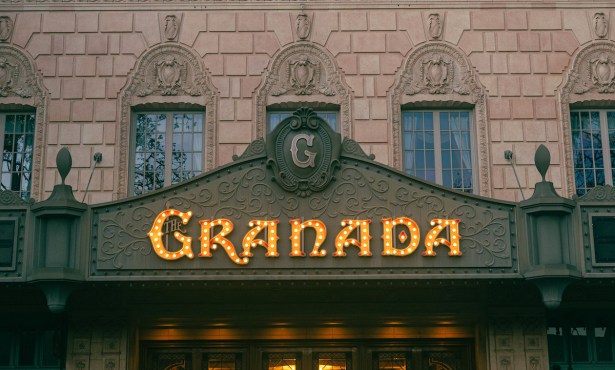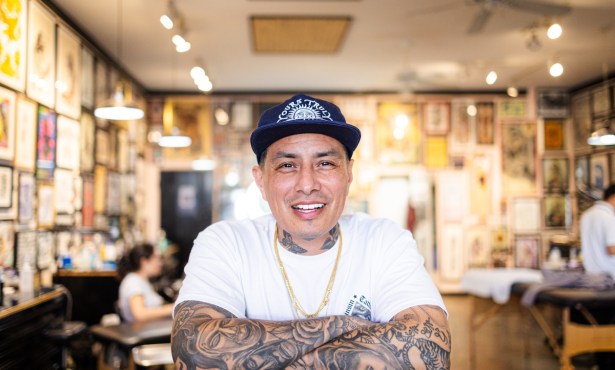The Nuts and Bolts of Success with Lady Ridley-Tree
Philanthropist and CEO of Multimillion-Dollar Company Gives as Good as She Gets
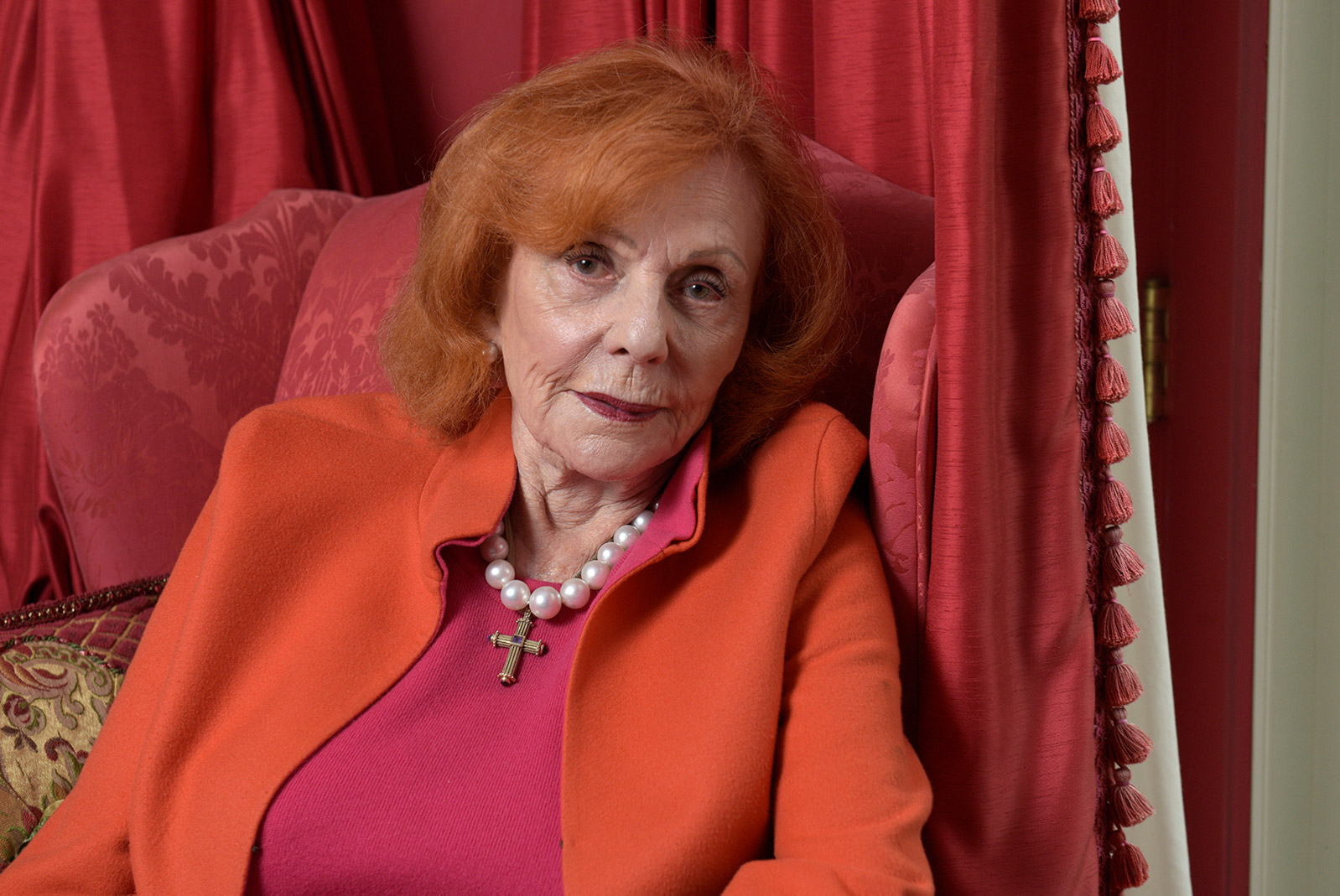
“I don’t think of myself as a philanthropist. I think of myself as having the enormous privilege of sharing, and sometimes I get very emotional about it because … I wish I had more to give,” said Lady Leslie Ridley-Tree. It was a foggy April morning when Santa Barbara Independent photographer Paul Wellman and I arrived at the home of the well-known Santa Barbaran to speak with her about, among other things, the Spirit of Entrepreneurship 2018 Rock Star: Life Achievement Award she will be receiving May 4 at the Hilton Santa Barbara Beachfront Resort (formerly Fess Parker’s DoubleTree Resort). The honor is bestowed each year to a successful female entrepreneur who has made an “indelible impact on our community.”
Clementine, a 13-year-old white fluff of a dog, was the first to greet us in front of the pleasant Montecito manor. A smiling Lady Leslie followed, looking smart in a pink dress and orange coat, a modest yet elegant outfit in a style reflecting the lady herself. Ridley-Tree showed us into her sitting room, which exuded old-world charm blended with mid-century California casualness.
During the interview, we spoke about her life, focusing mostly on what it’s like to be the CEO of Pacific Air Industries (PAI), a multimillion-dollar airplane-parts distribution company and FAA-certified repair shop founded in 1959 by Ridley-Tree’s late husband, Paul Ridley-Tree. Lady Ridley-Tree became CEO of PAI after her husband’s 2005 death, commuting to the Chatsworth-based office three times a week. At 93 years old, Ridley-Tree remains the hands-on driving force behind PAI. In the 13 years under her leadership, the company has grown and thrived, which allows Ridley-Tree to pursue her passion — sharing her wealth with the people of her beloved Santa Barbara.
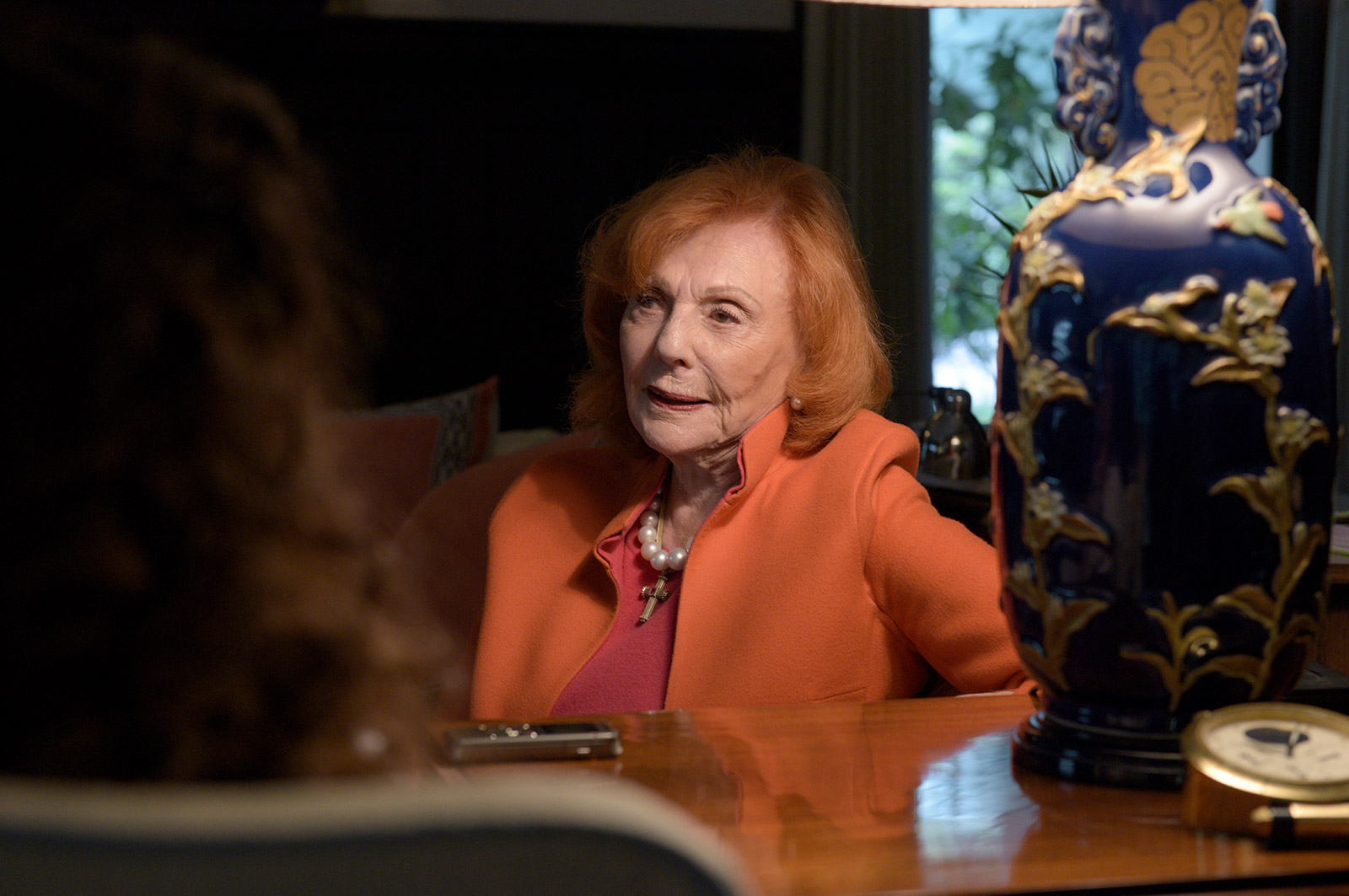
As part of the “old guard” of Santa Barbara philanthropists, Paul and Leslie Ridley-Tree have given to myriad organizations, among them the Santa Barbara Museum of Art (including its Ridley-Tree Education Center), Santa Barbara City College, Westmont, UCSB, the Santa Barbara Zoo, the Council on Alcoholism and Drug Abuse, Casa Esperanza, Music Academy of the West, United Way, Santa Barbara Neighborhood Clinic, Girls Inc., the Sheriff’s Council, the Santa Barbara Symphony, the Santa Barbara Chamber Orchestra, and the Santa Barbara Museum of Natural History. Lady Ridley-Tree’s most recent notable donation was the $10.7 million she bestowed on Sansum Clinic and the Cancer Foundation of Santa Barbara for a cancer center.
Ridley-Tree has had a varied and fascinating life, training in music, attending law school, directing a Manhattan community center, and implementing the first Head Start program, designed to help young, underprivileged children prepare for school. Though reticent to discuss personal details, Ridley-Tree is thoughtful and expansive when it comes to discussing her work. The following is an edited version of our conversation.
Where were you born and raised? I haven’t been born and raised. [Laughs.] I’m still working on it. I’m a work in progress. [Laughs.]
Where did you spend your childhood? On the East Coast? Yes, and Europe and all over. But I don’t think that is what [influences] what you do. I think you fall into what you do. Some people are educated for what they do. I’ve not been educated for anything that I’ve done.
You are self-taught? You’ve learned on the job? I think that has been it. I think doors opened. The need was there. Somehow I saw the need and stepped into it. Fortunately, I haven’t fallen on my face too often. I’m always amazed how I’ve ended up doing things. It has kept life very busy and very alive.
What was the very first door that opened for you? I think my life has always been like that. I’d make a plan and think, that’s what my life is going to be, and God looks down and says, “That’s lovely, little girl. Now I’ll show you what you’re really going to do,” and he gives me a push.
Did you have an idea of what you wanted to be when you grew up? Well, I was a violinist first. And then I was a singer. I’ve been a singer for a long, long time.
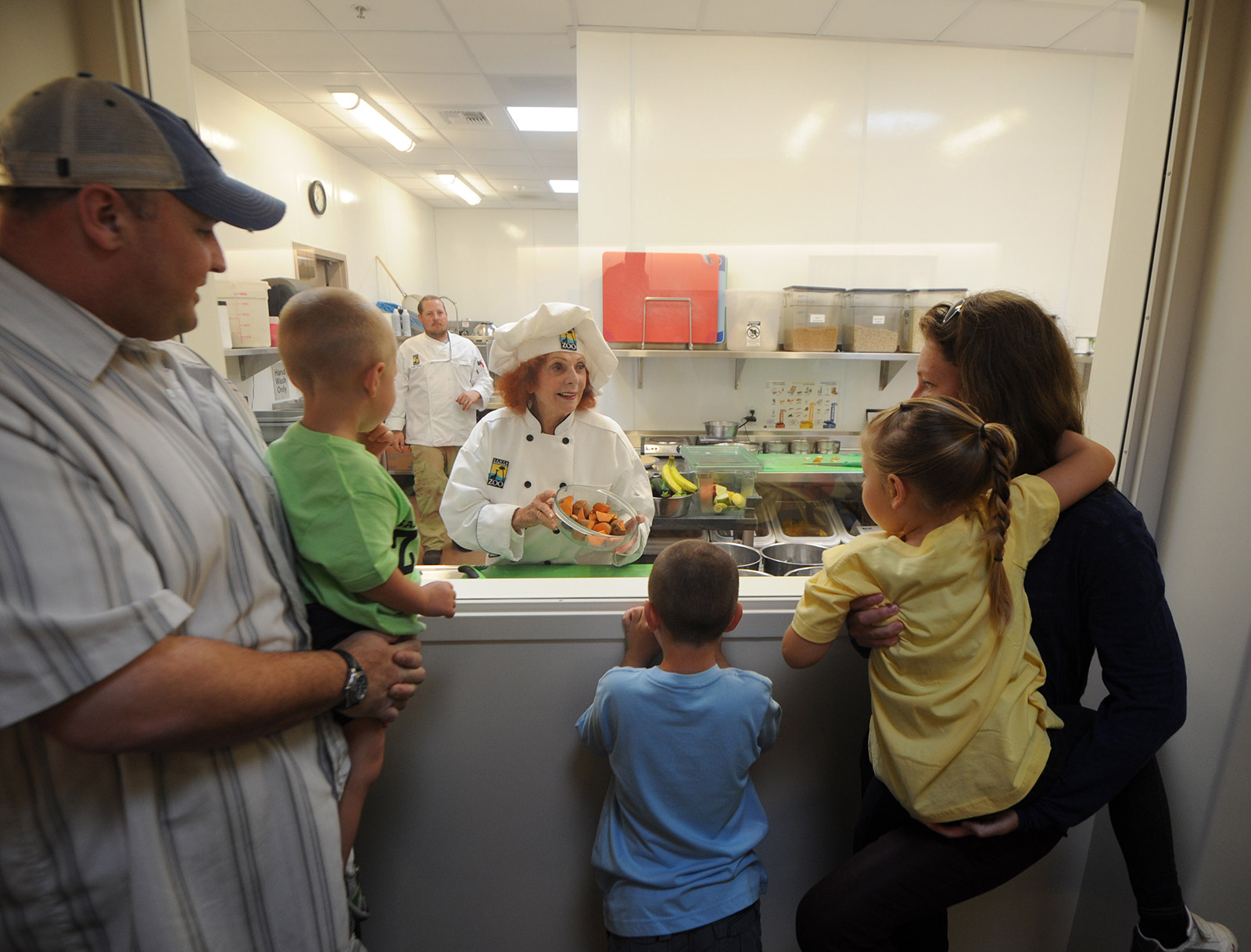
Opera? It started that way, and then it turned into torch [songs]. Life has been very full for me, very adventurous. And then for some reason, it turned again. It’s been a life of turning corners. … I had the privilege of being the director of a [homeless] center [in New York], and then I came to Santa Barbara, and I’ve had the joy of being involved in the community in a different way.
What brought you to Santa Barbara? Getting married.
Was your husband from here? No. When I married Paul, he was here.
Did you know anything about aerospace or planes? Nothing. I’ve never known anything about anything.
I don’t believe it. It’s true.
How did you learn about the company? Did you work there? Not really. I would hear [Paul] talk on the telephone, and then I would go to the office with him when he went once a month. I would listen, and I would talk to the people at the office and get acquainted with them. But just casually, I didn’t really involve myself, because he was semi-retired.
But now clearly you know what you’re doing. My husband said that if I broke both legs and was put in the hospital, in two weeks I would be running the hospital. It seems that I end up running things.
You have a good mind for leadership and organization. I take over.
From what I’ve read, it sounds like you’re a lovely boss. I would hope that was true. I try to be considerate. And I try to do what is best for the people without being too aggressive.
But you also have to have a business mind that makes multimillion-dollar decisions, I would guess. Well, I care for the bottom line …. I’ve always had a respect for money and a respect for people at the same time and that there is a balance.
That’s a nice combination. I think having a balance about that and caring for both and understanding that there is a need that you can’t be ruthless about money and you can’t be ruthless about people — you need both.
How long have you been running the company? Twelve and a half, 13 years.
What’s it like being a female CEO? I think it’s difficult; it’s very difficult to get the respect … to get a man to look at you and talk to you and look you in the eyes. And when you’re in a group and you have men about you, you have to be very strong to get a man to look at you straightforwardly. I’ve overcome the prejudice of having red hair. And having age on my side has helped a bit because now I don’t have to flirt to get attention.
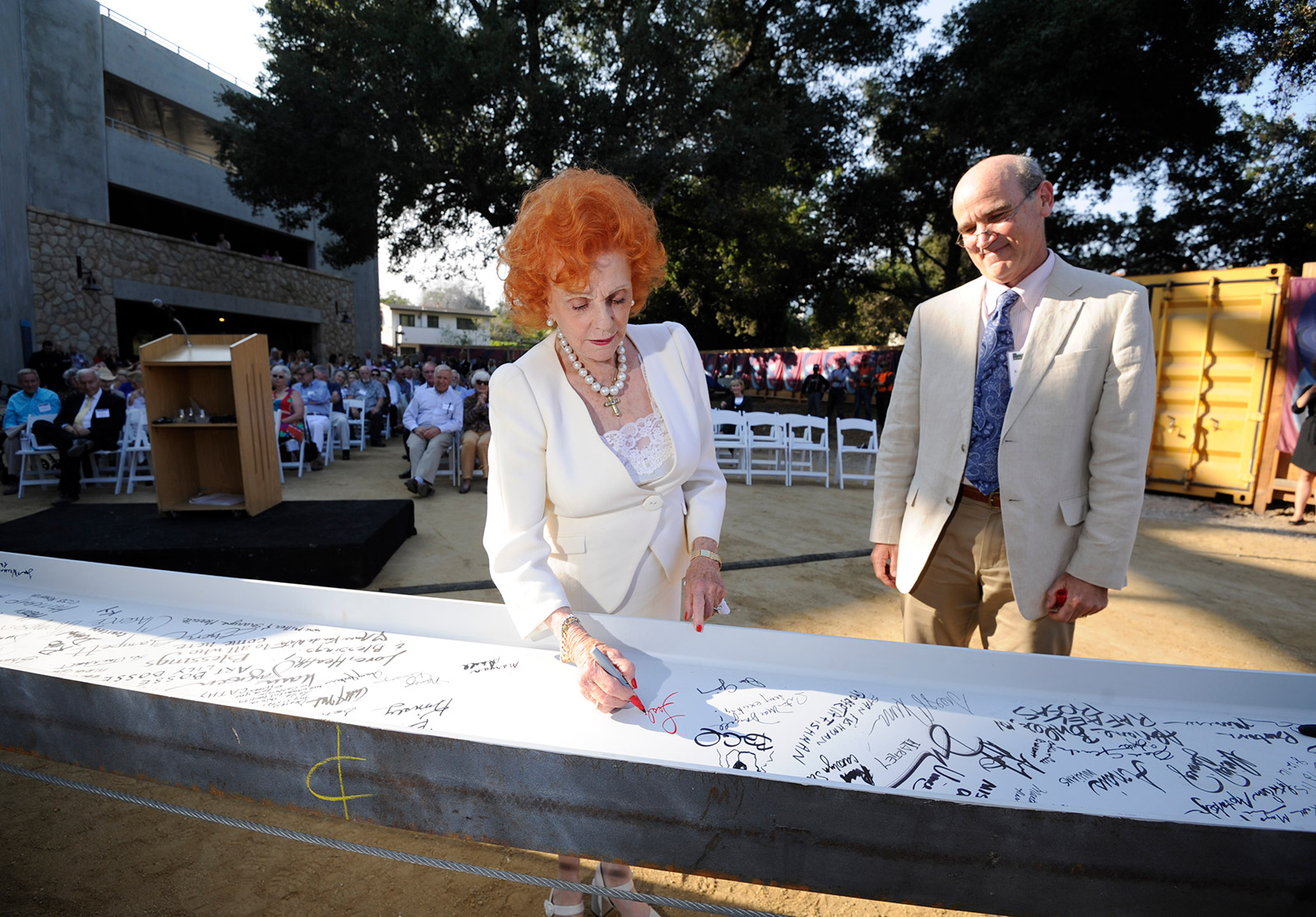
After running PAI for more than a decade, people must respect you now. I think to a degree, but I still have … to wait it out to get their attention … to get them to look me in the eye. I might even say, “I’m the one who signs your check, you know.”
That probably gets their attention right away. Yes, it does. And I’m prone to say that now.
Why do you think they won’t look you in the eye? I think they’re afraid. Whether it’s in the airplane business or it’s a farmer in the field, they’re all afraid. Maybe we have more power than we think we do, or they’re worn out with women’s lib. Whatever it is, I think they’re afraid. And I’m a very gentle person. I’m not even competitive. I just want you to talk to me. I don’t want you looking at my manager. I’m still the one who writes your check and signs it.
You’ve been involved in business both peripherally and as a CEO for a long time. How have things changed? I don’t think it’s changed hardly at all. When I think back to when I was director of the community center in New York and I had to deal with priests, and the priest would talk priest to priest, and yet here I was probably having more power with the city than they did — I was getting things done, and they weren’t. And, and yet they wouldn’t talk to me.
How did you maneuver that? I just did things and … just moved on.
Would that be your advice to businesswomen of all ages? Set your goal and do it. Don’t take offense. Just move on.
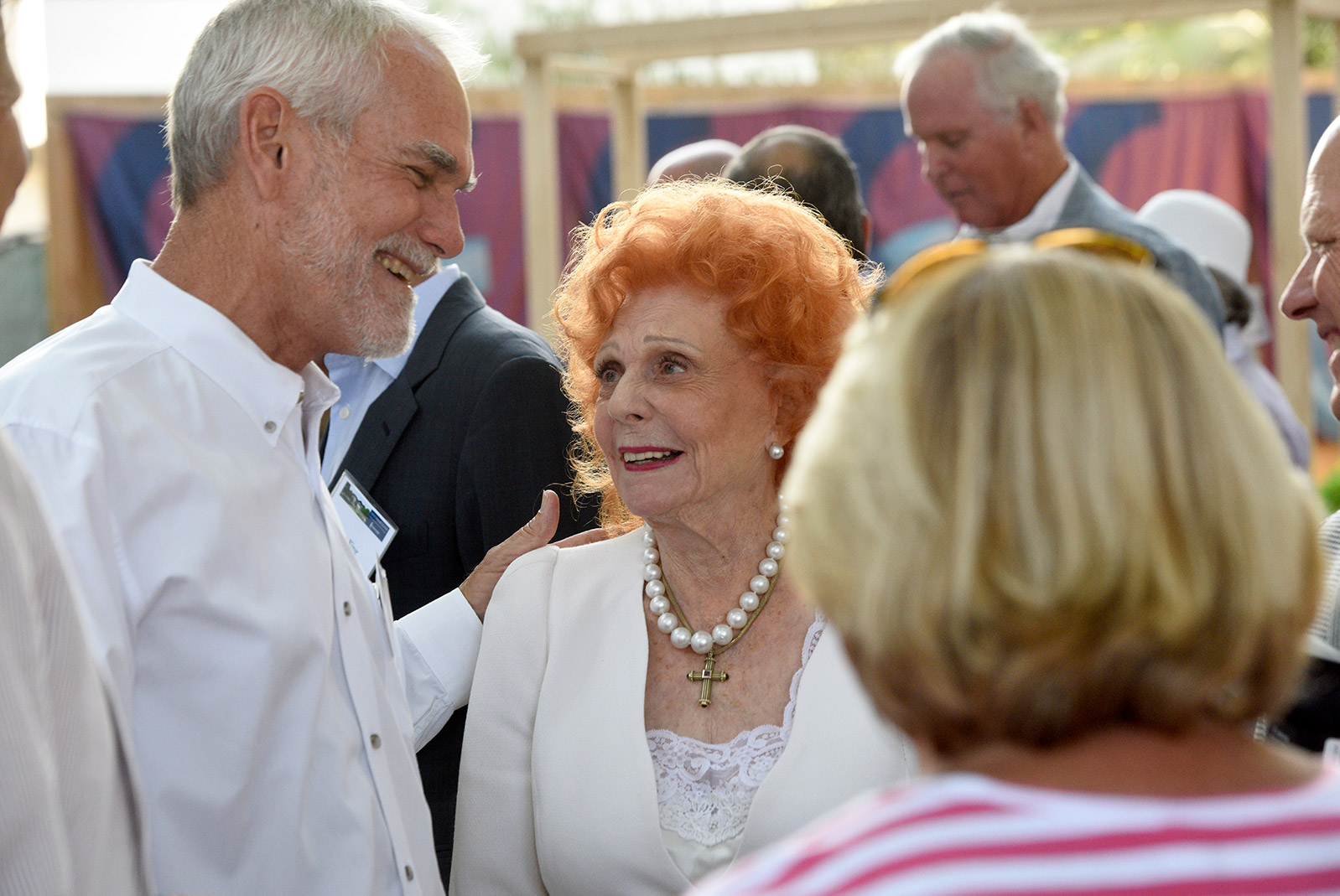
Do you consider yourself a businesswoman or a philanthropist first? Or are they intertwined? I don’t think of either of those things. I think of myself — my granddaughter bursts out in laughter when I say this — [as] a very ordinary person …. I think of myself as having the enormous privilege of sharing, and sometimes I get very emotional about it because I wish I had more to give. [I asked my accountant,] “How can I make more money so I can give it [away]?” He said, “By God, you give more than anyone.” And I said, “But, you know, there is something I really want to do. There is a project I really want to give more to. My taxes are taking too much this year. Isn’t there a way I can find more money to give to this project that I want to give to?” So, I don’t think of myself ever as a philanthropist. I just think I’m in a wonderful situation that I can earn money that I can give.
So you’re earning money to give away the money? I can live frugally because I’m older. There’s not much I need. I’ve traveled. My children are grown. My grandchildren are grown. I’ve taken care of them already so that I can be more generous.
You’ve been a benefactor to the art museum, the hospital cancer center, the zoo. Your interests are varied. What is your next project? Right now there is a care center. I find that there are so many people that have been so hurt by this last disaster that we’ve had …. I can’t believe how many people are hurt in such different ways, sociologically as well as having physical losses. And the care center, I think, is vital because it appears that people are going to need help for a lengthy period of time. I know how I feel, and my house is here. Sociologically it’s so awful …. And there are people that don’t realize how much they’ve been affected. But they’re beginning to find out.
Did you have experiences in your life that allow you to sympathize with the people who lost homes and loved ones? I think that if you live to be 90 years, you’ve probably had a group of experiences … you hope you have wisdom. You hope.
Tell me more about your role in PAI. I say it’s a mom-and-pop business because I have less than 30 people working for me, so I know each one intimately. Some have been there for 40 years. The business is 60 years old. … My head salesman, his father worked there first. And he started as a boy in the warehouse. I really couldn’t have a business without him. He’s invaluable. And he knows it …. He’s wonderful — hard to get along with sometimes, but wonderful.
And Maria Batista, she started with my husband. Her daughter now works with us as well. So it is a mom-and-pop business, and each person is very important to me.
And it’s a fascinating business. So many people in our business have gone belly-up because they have over-enlarged. We have not. We are small, but we are able to hang on. I don’t owe anybody any money. We probably run it in an old-fashioned way — we buy good inventory, have good people selling it. We have integrity. We do what we say we can do — no more and no less. Our word is pretty strong out there, after 60 years. We’ve taken care of Air Force One. And I’m very proud of that.
How did your husband get into this business? Oh, it’s a wonderful story. It was just after World War II. He was of very modest circumstances, and he had children. He looked around for a good business to get into, and he said he was going to get into the nuts and the bolts [of the airplane industry]. And everybody said, “Oh no, you need to get into engines and big parts.” And he said, “Nope. I’m going to sell nuts and bolts.” At nighttime, in his home, in Topanga Canyon, he would package nuts and bolts and sell those. He said people will always need nuts and bolts, but they won’t need big airplane parts. The big parts don’t wear out, but nuts and bolts wear out.
And then he had to go to the companies and give a sales pitch for them to buy his nuts and bolts. Right. Exactly. And they said, “Well, why don’t you manufacture them?” He said, “No, I’m not going to manufacture, because you have to do it so precisely to be with the FAA, and I always want to be on the right side with the FAA. And I don’t want anyone to ever say that I made a screw that wasn’t exactly with the FAA.” And some of the men friends said, “Oh, it won’t matter if you cheat a little bit.” And he said, “Oh no, I’m not ever going get in that position.” Of course his friends went to prison.
Because they cheated a little? They cheated a little bit. And that’s still true today. That’s still true today.
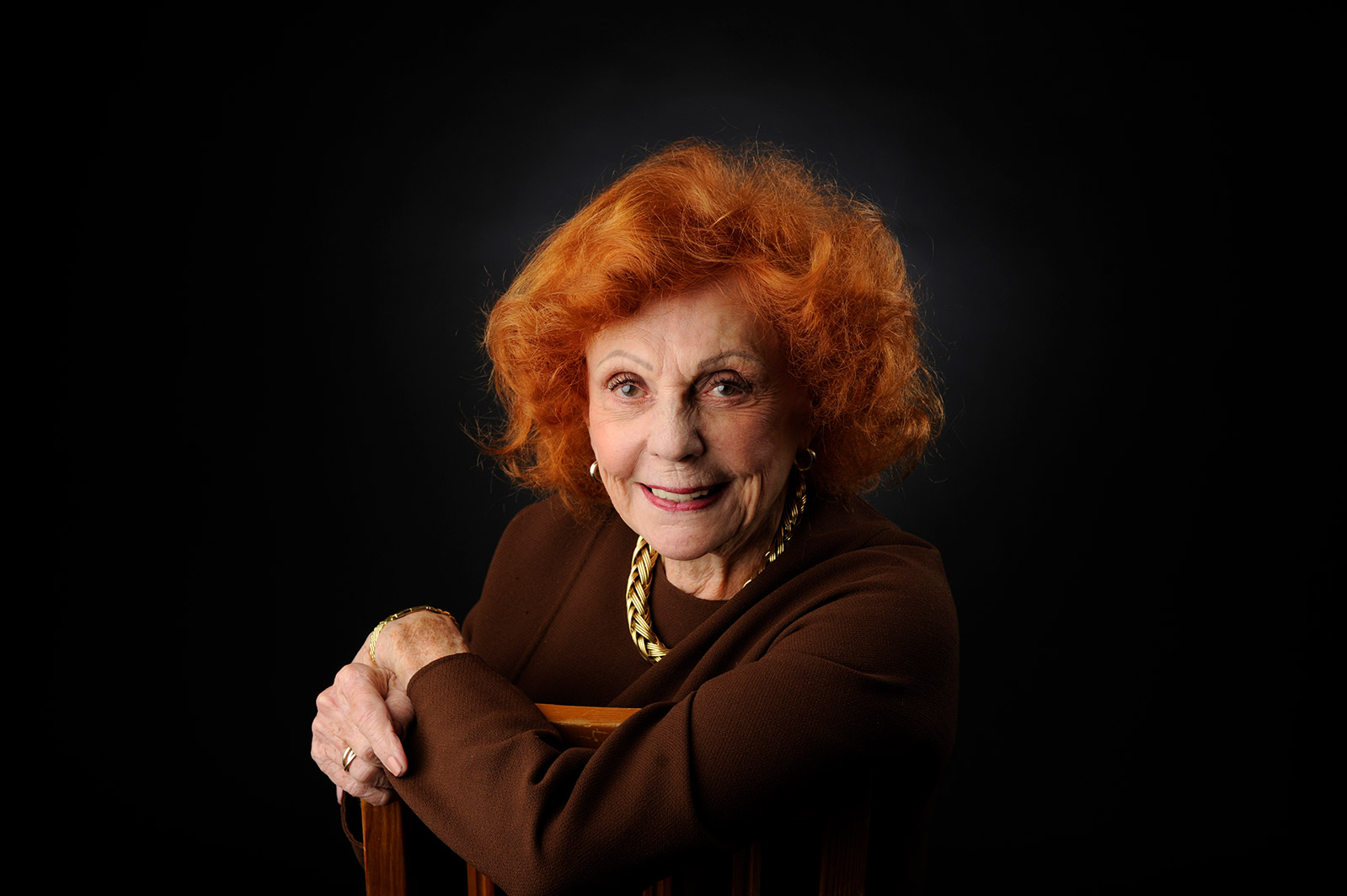
Because you have people’s lives you’re talking about. The consequences are massive. That’s exactly it. He always was very, very careful to follow the line. And his other principle was to stay with what you know. He was really very modest and very marvelous. He could rattle off all the numbers of the airplane parts. He couldn’t remember who he was last night, but he could remember all the numbers of the airplane parts. [Laughs.]
You probably never imagined you would move to California and run an airplane parts company? No. No, I thought [California] was a terrible place to live.
Why? Because it was brown and dry … I didn’t know Santa Barbara.
What do you think of California now? Well, I think it’s a paradise. When I came up to Santa Barbara, I fell in love with the trees. They’re so beautiful.
What does receiving the Spirit of Entrepreneurship Rock Star award mean to you? I’m very honored to be chosen as an entrepreneur. It’s a big word. It’s like the word “philanthropist.” I don’t think of myself as an entrepreneur. I’m not sure I even understand what that means, but I’m very honored to be among the women who’ve been chosen before. I think it’s lovely, and I think the dedication and the focus of why they have gathered these ladies, I think that is very, very important. [When my doctor found out], he immediately sent me a card that was full of rocks. It was a funny card with pictures of rocks on it that read, “Who would believe you were going be a rock star.” [Laughs.]


